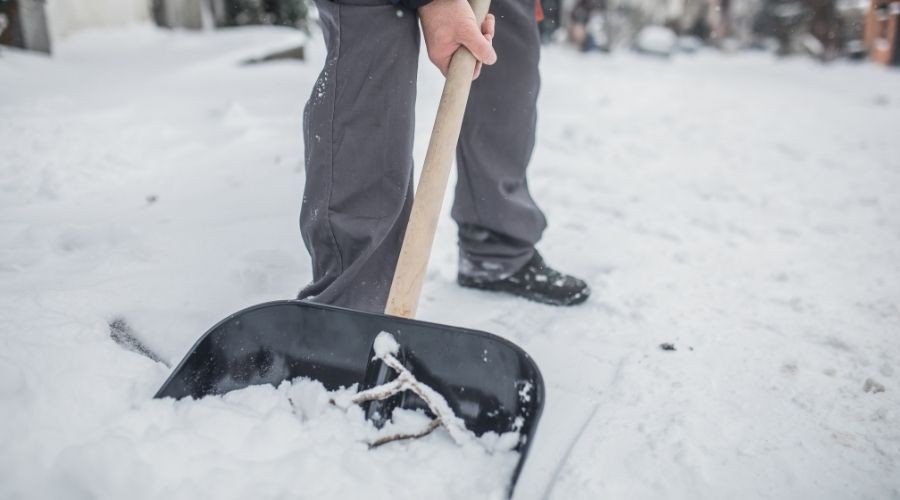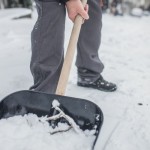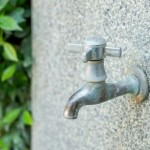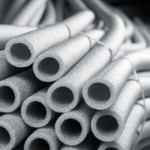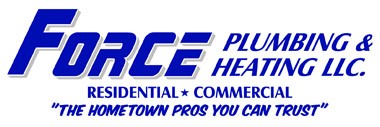Prevent Frozen Pipes and Protect the Property
Frozen pipes during the winter months can crack and potentially spew hundreds of gallons of water into a home. This can become a nightmare for homeowners, but this risk can easily be neutralized with proper plumbing care and maintenance. In colder climates, water supply pipes located near exterior walls or in an unheated home or garage are most at risk.
Burst pipe repair is costly, time-consuming, and stressful, so prevention is key to keeping this winter season calm and enjoyable. Read on for more helpful information.
Tips for Pipe Insulation
 Insulation is not just used for preventing heat loss or gain. When considering which pipes to insulate, it is important to understand that both hot and cold water pipes should be covered in unheated spaces because hot water pipes can freeze, too, if not properly cared for.
Insulation is not just used for preventing heat loss or gain. When considering which pipes to insulate, it is important to understand that both hot and cold water pipes should be covered in unheated spaces because hot water pipes can freeze, too, if not properly cared for. - Tubular foam pieces are sold in 6-foot lengths for long stretches of pipe. These tubes are made of either PE foam or rubber. Both of these options require slitting and gluing or self-adhesive.
- For shorter sections of pipe or bends, use pipe wrap or piping tape.
- Spiral wrap insulation is a reflective wrap made of fiberglass that is not sticky on its own, so duct tape is required for this method.
- Fiberglass insulation is an inexpensive option but is 2-3 inches thick, which is rather bulky. Pipes should be wrapped in plastic to reduce condensation on cold water pipes. Proper safety PPE (gloves, eye protection, dust mask) should be worn when interacting with this insulation.
Before a pipe repair company installs insulation, technicians will clean and degrease pipes to provide the best seal possible.
How to Shut Off Outdoor Faucets to Prevent Freezing
 First, find the outdoor water shutoff valve. If the homeowner doesn't know where it is, check the basement ceiling near the wall where the outdoor faucet is located. Turn the knob to the right to close if it has a round handle or turn to the “closed” or “off” position if the handle is a lever. Disconnect any outdoor hoses if they are still hooked up so water cannot back up into the pipes and freeze.
First, find the outdoor water shutoff valve. If the homeowner doesn't know where it is, check the basement ceiling near the wall where the outdoor faucet is located. Turn the knob to the right to close if it has a round handle or turn to the “closed” or “off” position if the handle is a lever. Disconnect any outdoor hoses if they are still hooked up so water cannot back up into the pipes and freeze.
Once the interior valve has been closed, turn on the outdoor faucet to drain any remaining water from the pipes, then close the faucet valve again. Drain the inside valve by putting a bucket under the valve and opening the drain plug. The drain plug is a metal cap on the side of the shutoff valve.
After draining, put the cap back on. Repeat these steps for every outdoor faucet in the home. If there are questions or additional help is needed, consult with a licensed plumbing company.
Making Sure the Heat System Is Working Properly
Heat systems that are not functioning properly require frequent repairs should be evaluated by a professional plumbing or heating service because pipes could freeze if not kept at a steady temperature. Also, if the family is planning to be away from home for a few days during the winter months, be sure to check the heating system for proper function.
Keep the heat set at a consistent temperature above 55 degrees Fahrenheit to keep pipes from freezing. Thermostats can be installed on uninsulated pipes and set to alert if pipes get to be less than 20 degrees because this temperature is an industry-standard alert threshold. A properly heated home will give homeowners peace of mind knowing that they can avoid costly frozen pipe repairs and months-long home repairs.
About Force Plumbing and Heating LLC
Force Plumbing and Heating LLC, located in Holmdel, NJ, is a family-owned and operated company with a master plumber taking every customer call so homeowners know they are getting expert advice from experienced service providers they can trust. Contact them today to help prevent frozen pipes in Holmdel.
